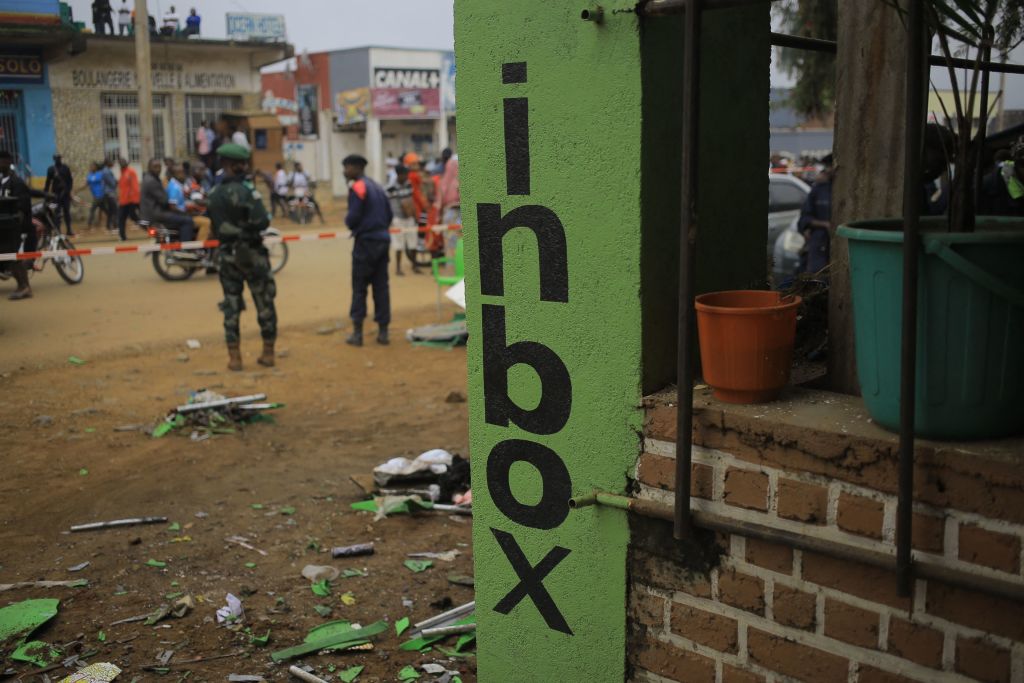ADF STAFF
Soldiers killed an Allied Democratic Forces commander known as “Dr. Musa” April 8 during a joint operation by the Uganda Peoples’ Defence Forces (UPDF) and the Armed Forces of the Democratic Republic of the Congo (FARDC).
Maj. Bilal Katamba, the UPDF’s mountain division public information officer, said Musa managed all of the rebel group’s medical logistics and worked closely with top Allied Democratic Forces commander Muhammad Luminsa.
A Rwanda native, Musa was killed in the DRC’s northern North Kivu province near the Ituri province border. The joint forces also confiscated a submachine gun and military radio.
“His death is an achievement to us,” Katamba said in a report by Ugandan newspaper The Daily Monitor. “They were in a small group of about five because now [the Allied Democratic Forces] operate in small groups.”
The joint forces on April 4 also killed an Allied Democratic Forces commander known as “Baghdad,” a Uganda native, near Tingwe in Ituri. The forces also confiscated a submachine gun, 31 rounds of ammunition and a military radio.
Analysts say that remnants of the group have scattered since being driven from the Mwalika Valley in North Kivu last year.
“The joint forces continue to actively track and apply pressure on the remaining [Allied Democratic Forces] factions, which have resorted to splitting into smaller groups to evade consistent and persistent attacks from the UPDF/FARDC,” Katamba said in a report by Uganda’s Nile Post newspaper. Katamba said the rebel group is increasingly using improvised explosive devices (IEDs) in its attacks in eastern DRC and Uganda.
“However, the joint forces’ technical explosive ordnance disposal (EOD) teams are handling the IED threats,” Katamba told the newspaper.
The Allied Democratic Forces is one of about 100 rebel groups fighting security forces, local militias and one another in eastern DRC. The most prominent terror group is the M23, which is currently advancing toward Goma, North Kivu’s capital city.
“Although [the Allied Democratic Forces] has received less attention than the M23, it is at least as deadly,” DRC expert Kristof Titeca of Belgium’s University of Antwerp told Deutsche Welle.
In February, the group killed at least 24 civilians during separate attacks over two days. At least 11 people were killed with machetes and guns during the first attack in North Kivu, while 13 people were killed in Ituri, where most victims were killed in their homes.
The group has also shown resilience despite military pressure.
On April 12, four days after Musa’s death, the Allied Democratic Forces were blamed for the shooting deaths of at least 10 people working in fields in the Mulekera commune near Beni in North Kivu. Three women were among the victims.
“Certainly, there are other bodies that we will find as the search continues,” Mulekera Mayor Ngongo Mayanga told Reuters. One survivor said he was working near his daughter-in-law when he heard gunshots. He fled to the forest, where he spent the night.
“My daughter-in-law went in the opposite direction, but unfortunately that’s when she was killed,” he told the news service.
Linked to the Islamic State group, the Allied Democratic Forces were formed in Uganda in the 1990s by several rebel groups with little shared ideology but a willingness to conduct violent attacks against civilians. Ugandan forces defeated the group, and its remnants fled to the DRC.
The Allied Democratic Forces is largely funded through illegal mining and logging operations and kidnapping people, often children, for ransom.
The United Nations reported last year that the Islamic State group also has “provided financial support to [the Allied Democratic Forces] since at least 2019, through a complex financial scheme involving individuals in several countries on the continent, emanating from Somalia and going through South Africa, Kenya and Uganda.”
Besides Congolese and Ugandan forces, troops from Malawi, South Africa and Tanzania are battling terrorist groups in eastern DRC under a Southern African Development Community (SADC) mission.
In mid-February, South Africa’s government said that another 2,900 of its Soldiers were being mobilized for the SADC operation, which has a mandate until December 2024.

